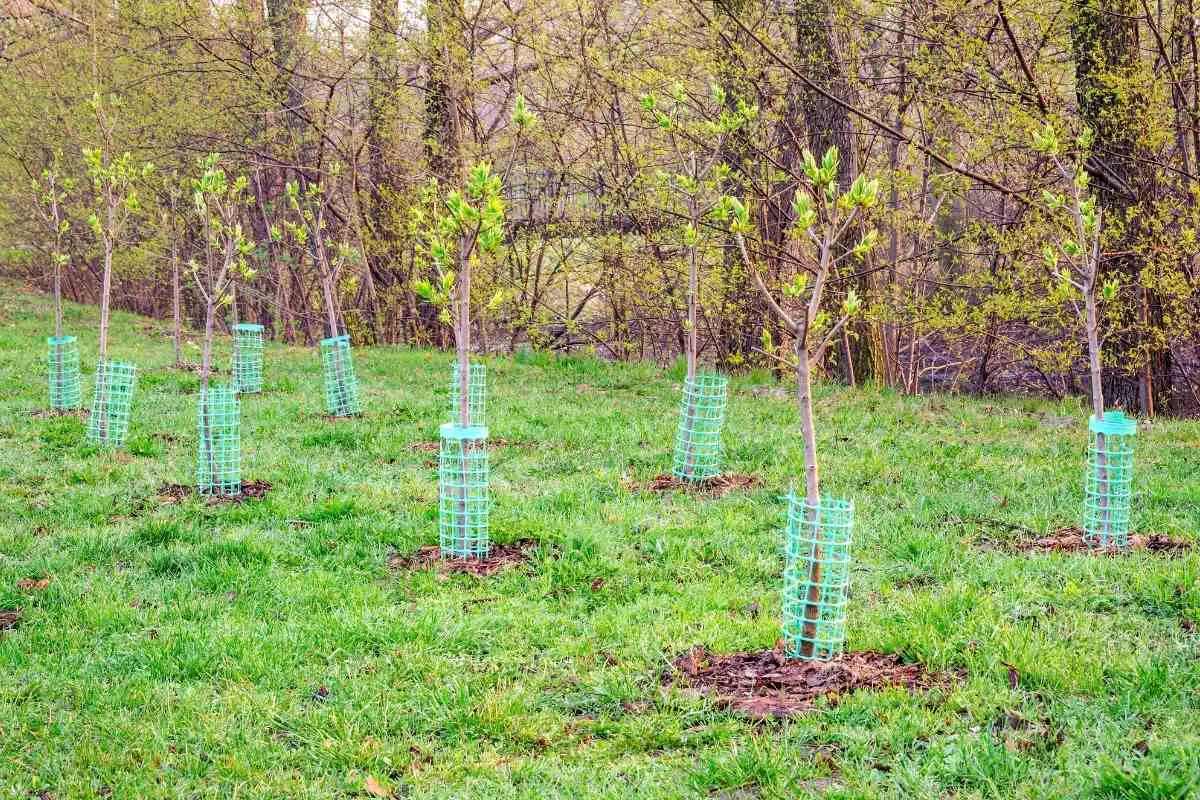You can plant about 500 trees per acre, depending on factors like soil type, type of tree, rainfall level, seed rate, soil cover, etc.
In this article, we will go through how many trees you can plant in an acre, discuss efficient methods of tree plantation, and factors that affect plant density.
Let’s get started!
How Many Trees Can I Plant Per Acre?
| Recommended spacing (feet) | Recommended spacing (meters) | Trees per acre |
|---|---|---|
| 3 | 1 | 4050 |
| 5 | 1.5 | 2400 |
| 6.5 | 2 | 1200 |
| 8 | 2.5 | 774 |
| 10 | 3 | 550 |
500-2000 trees can be planted in one acre.
However, this number is not set in stone and depends on factors like the type of soil, amount of rainfall, plantation type, etc.
In row plantations, hardwoods are planted at a distance of 15 to 25 feet.
Softwoods, on the other hand, are planted at a spacing of 6 feet apart, and subsequent rows are thinned every second tree for pole wood.
Softwood plantations also take up less space because they need less area to extend their branches.
Profits and forest health may be further diversified by planting coniferous and deciduous trees in alternate rows.
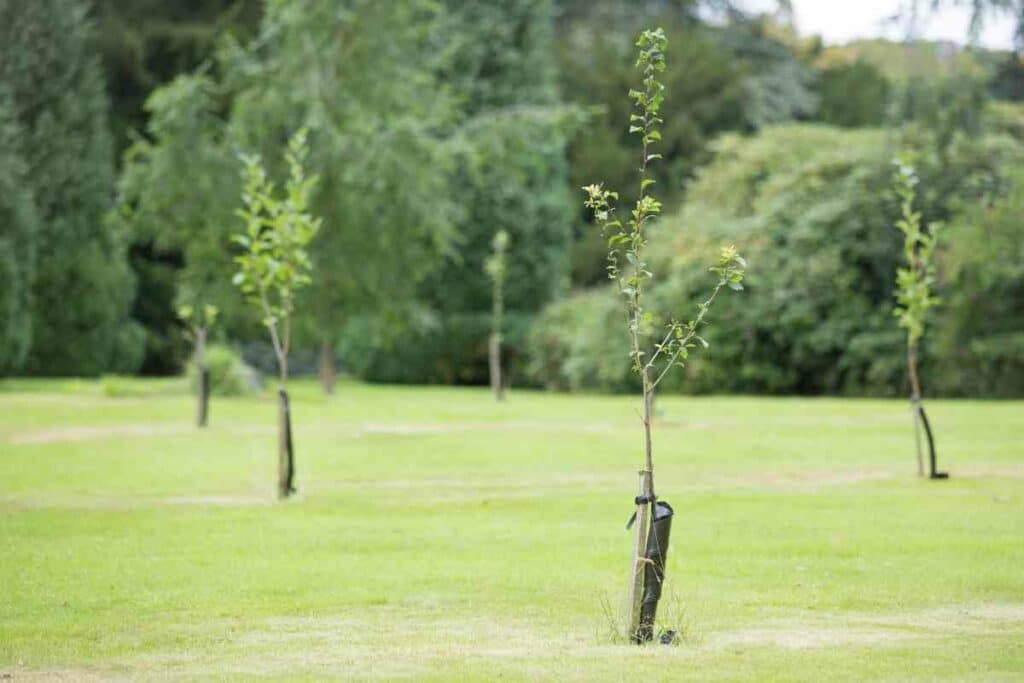
Having a pre-planned pattern helps you navigate an area easily.
Tree growth rates are significantly lower (-20%) in a row plantation than in a spiral plantation, even though the rowed plantation yields more trees per acre.
The most common planting patterns are vertical and alternate row planting patterns. Another system is the square system, where the trees are planted on each square corner.
Here is how you can select a suitable planting system.
Calculating the Number of Trees to Plant
To calculate tree spacing in an acre of land, you need to get accurate speculation of the area required by each tree.
As stated above, there is a notable distinction between hardwoods and softwoods.
The general rule of thumb suggests that hardwood trees need twice as much room as softwood trees.
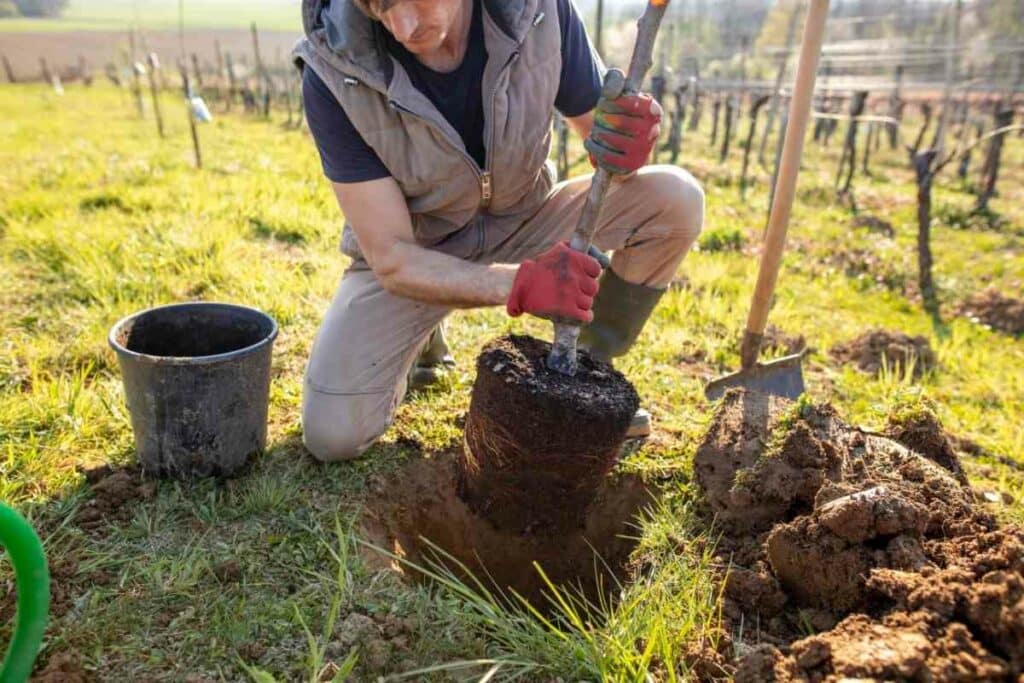
The ideal spacing can range from 6 feet to 25 feet depending on whether you are planting normal-sized, dwarf, or semi-dwarf trees.
On the Contrary – Landscape trees like elm or oak require a spacing of about 20-25 feet. You can find the right planting distance for each varietal here.
Once you have decided how far apart you want to plant the trees, you also need to consider the space between the rows so that you can drive a vehicle in between, say an extra 10 feet.
For a tree that needs 25 feet of growing room and 10 feet of space for a vehicle, the required row spacing is roughly 35 feet.
To get the plantation density, multiply the row spacing by tree spacing. In this case:
35 feet x 25 feet = 875 square feet per acre
Then divide this number by 43,560 square feet that make up an acre and you will get the number of trees you can plant.
You can also use an online tree spacing calculator.
Calculating the Number of Existing Trees
If your rows and individual trees are equally spaced apart, this process will be almost the same as figuring out how many trees to plant.
Start by counting the distance between each row of trees.
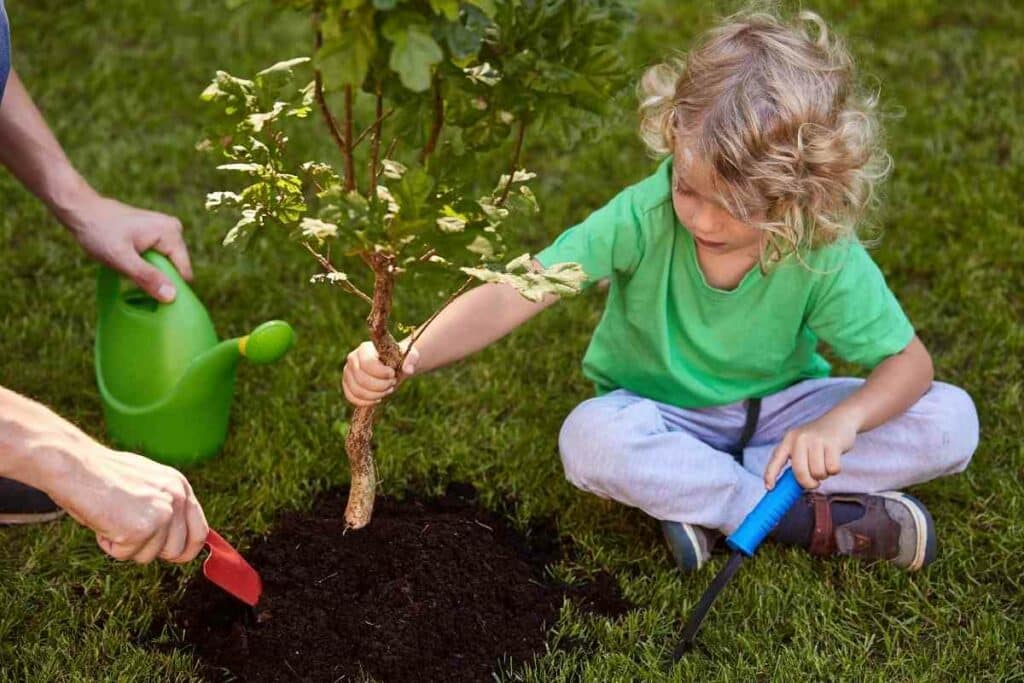
Take an average of six adjacent rows if you see any variation.
Then, determine how far apart the tree rows are from one another. Multiply these two numbers to get the square footage needed for each tree.
Then, divide this number by 43,560.
Note – Never use fractions during such calculations, and always use decimals. For instance, 10 ½ feet between rows should be noted as 10.5.
Factors Affecting Tree Spacing
Now that you know how many trees you can effectively plant in an acre of land, you should also learn about optimum plant density and maximum yield.
Here are some factors you must consider to get the best yield when planting trees:
- Plant size and elasticity: This refers to the degree to which a plant may change in size from the smallest viable unit to larger types like oak.
- Foraging area or soil cover: Good soil coverage provides ample plant nutrition and helps maximum intercept sunshine. The area of root spread also determines density.
- Management factors: This varies with everyone and includes things like time of sowing, irrigation systems, method of fertilizer application and seed rate.
Lastly, you must consider the cost of planting trees on one acre of land.
Labour expenses, water treatment fees, fertilizers, permits, and taxes may all add up to a significant amount.
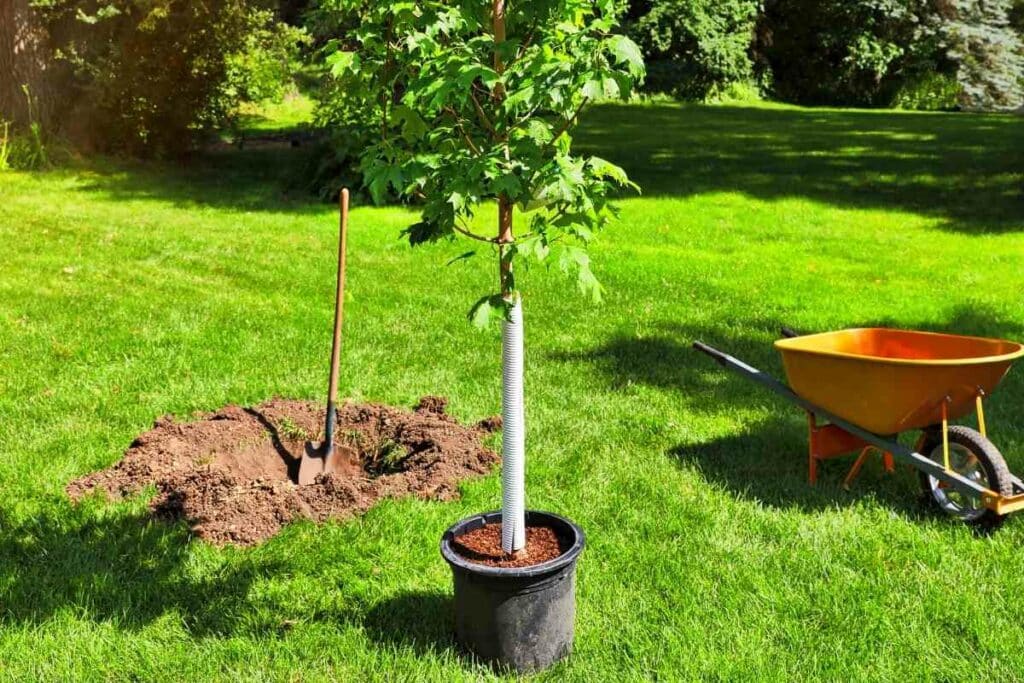
Another way you could do this is by doing it yourself, which will save you money.
On average, the price per tree ranges from $35 to $75, including shipping and planting. The labour cost can vary by area.
If you buy trees in bulk, you can also save up on this cost. As for the tree saplings, they cost $1-$20, depending upon the species.
Combining This All – You can expect to spend around $1000 to $3000 depending on the labor cost and the kind of tree you choose to plant.
Frequently Asked Questions
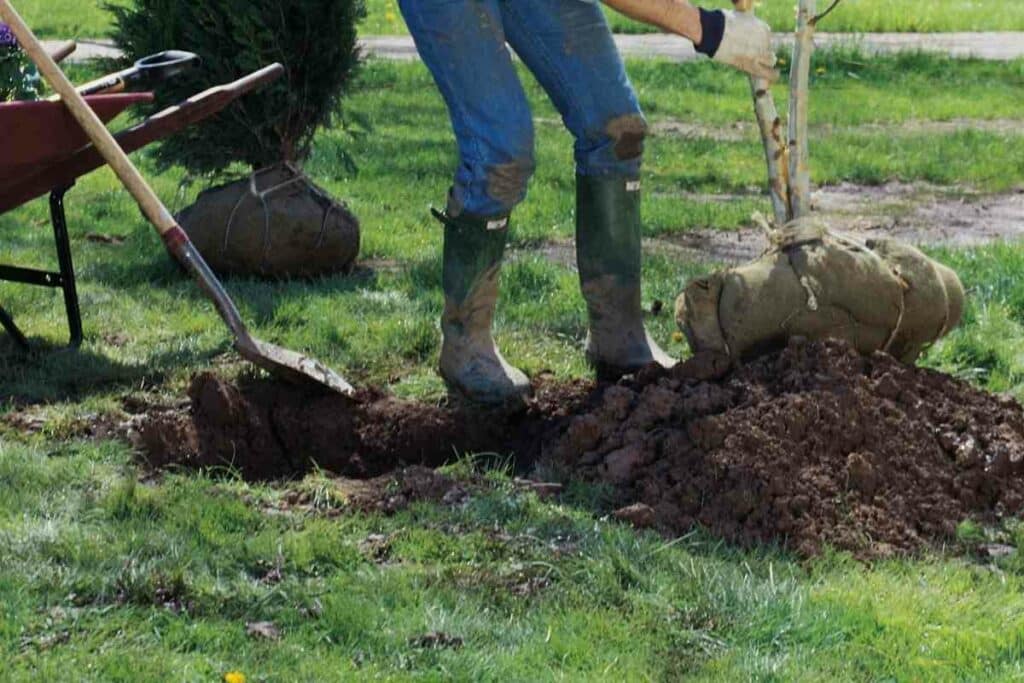
Planting trees gives you a green canopy for hundreds of years.
Here are some common FAQs to clear your doubts regarding planting trees.
Which Tree Is Best for Investment?
Here are some tree species that can help you turn a profit in the tree growing business:
- Dogwood
- Bonsai trees
- Japanese maple
- Elm
- Almond trees
- Willow
- Avocado
- Shrub trees
Can I Grow Different Species of Trees on the Same Plantation?
Yes, you can! Single-species plantations are not as efficient since fewer roots exist near the surface, leading to nutrient loss.
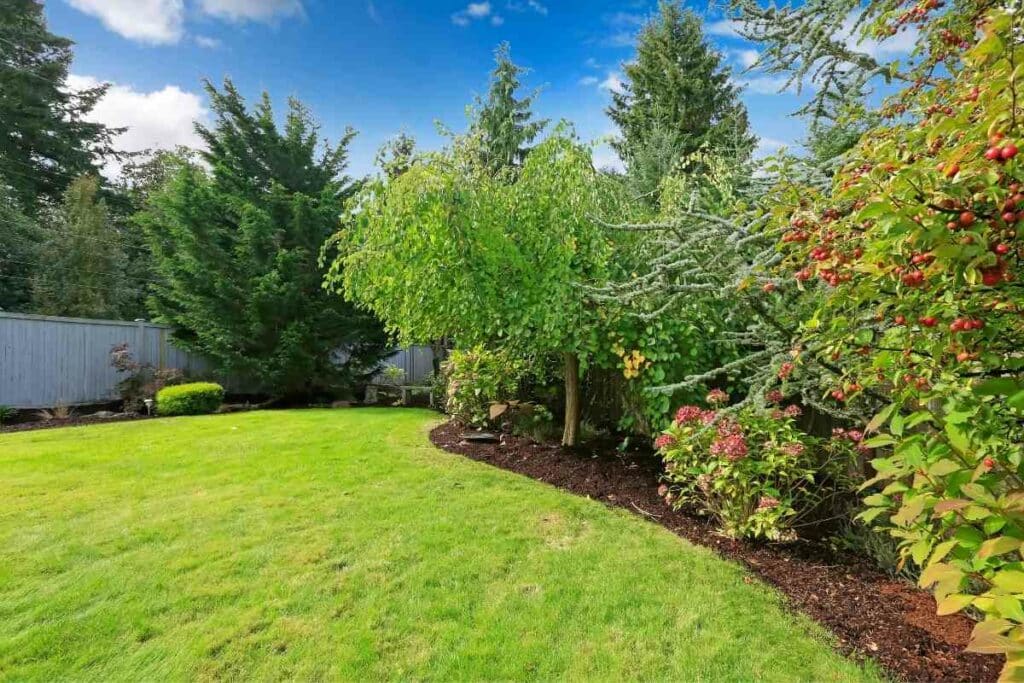
Can Fast Growing and Slow Growing Trees Co-exist?
A fast-growing tree will take up more nutrients from the soil than a slow-growing tree.
This sometimes leads to a lack of nutrients for the slow-growing trees causing them to wither and die.
Final Words
Whether you have just purchased a property or need to plan a maintenance schedule for spraying, don’t forget that picking the right plantation density is imperative to grow trees.
We hope this article helped you better understand methods of tree plantation, and factors that affect tree density.
